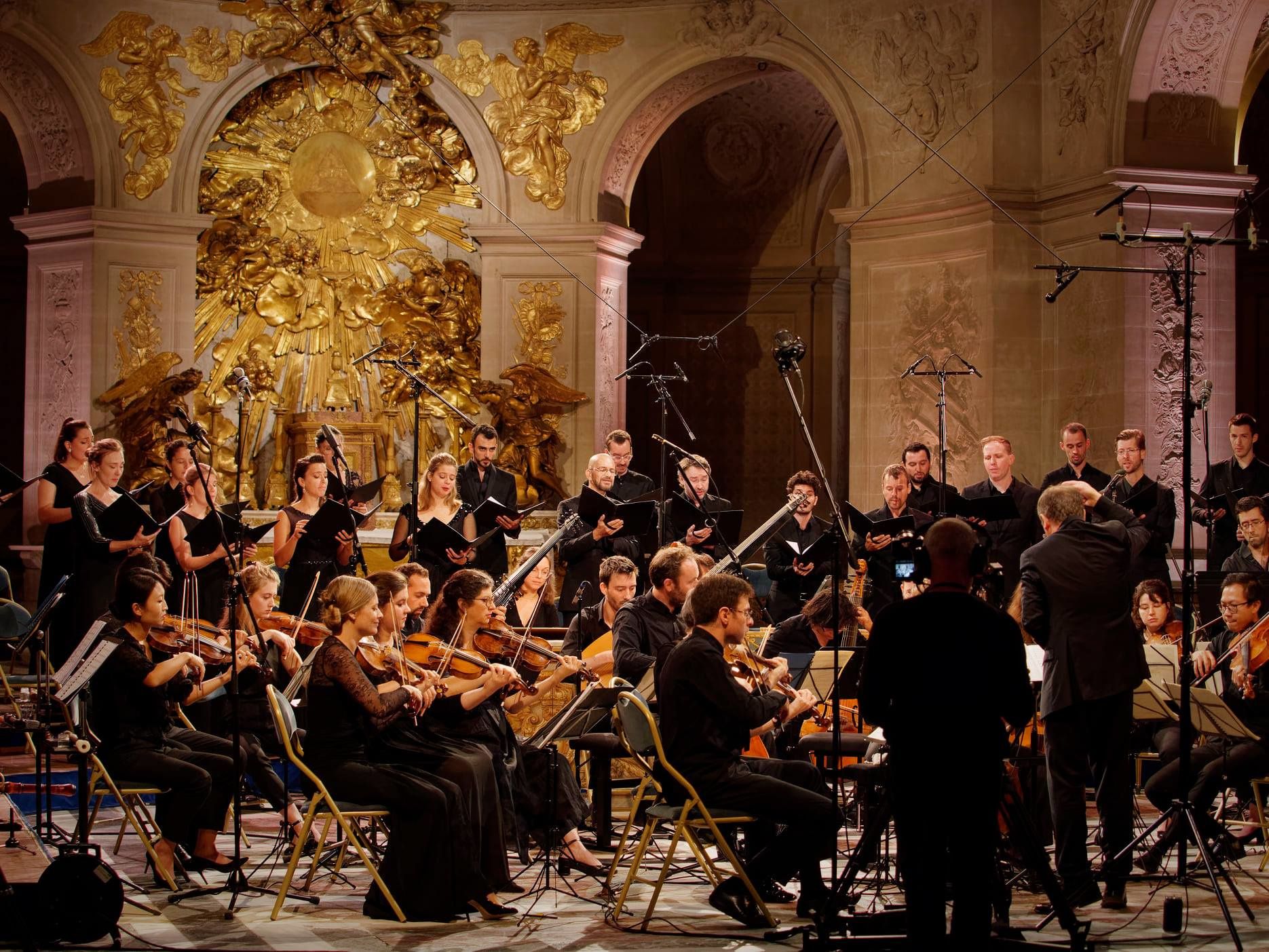Lully Grands Motets from Versailles
Fuget and his group bring out the beauty of Lully's writing; recorded in perfect sound, this disc is a rare treat

Beautifully recorded in the Chapel Royal at Versailles (a visually sumptuous arena with an acoustic to match, well caught here), Stéphane Fuget and Les Epopées offer three substantive works by Jean-Baptiste Lully (1632-87), in what is the second volume of Lully sacred works.
Here's an overview form the label, Château de Versailles Spéctacles:
Lully's best-known religious work is the Miserere, LWV 25 (1663), based of course on Psalm 50 and heard first here. This is a work of sublime beauty. The earliest performace we know of of this piece took place in March 1663. Its sublimity is possibly best exemplified in the penultimate section, "Sacrificium Deo," but what sits in the mind is its timeless sense of expanse. In a sense, this is pain for the ages: some 12 movements in which Lully shows himself a master of what the fine booklet notes refer to as "rhetorical intelligence" in his finely naunced reaction to each word of the text.
The feel of Quare Fremuerunt Gentes, BWv 67 (1685) is immediately different (Psalm II: Whay have the gentiles raged?), the music active, disturbed, as Israel's enemies conspiring against the Christian God. finding some sort of solace at the beauty of "Et nunc reges intelligite" (And now, ye Kings, understand). Interesting that the counterpoint is preserved within the generous acoustic of the Chapelle Royale.

Finally, the more joyous Jubilate deo, LWV 77/16 (1660), a work of regal mastery that includes the most tender solo passages ("Reges terræe") and written to celebrate the signing of the Treaty of the Pyrenees. You can hear Fuget and Les Épopées complete here:
Fuget and his group bring out the beauty of Lully's writing; recorded in perfect sound, this disc is a rare treat.
Here, as a substantial bonus, is a video of Lully Grands Motets performed by these forces, in Versailles:
https://www.youtube.com/watch?v=hEgoqtLzHEI&t=14s
(Programme : Jean-Baptiste Lully - Dies Irae - O Lachrymae fideles - De Profundis)
And as to further listening: see also Classical Explorer's post on Lully's Atys here.
Lully Miserere(Versailles)